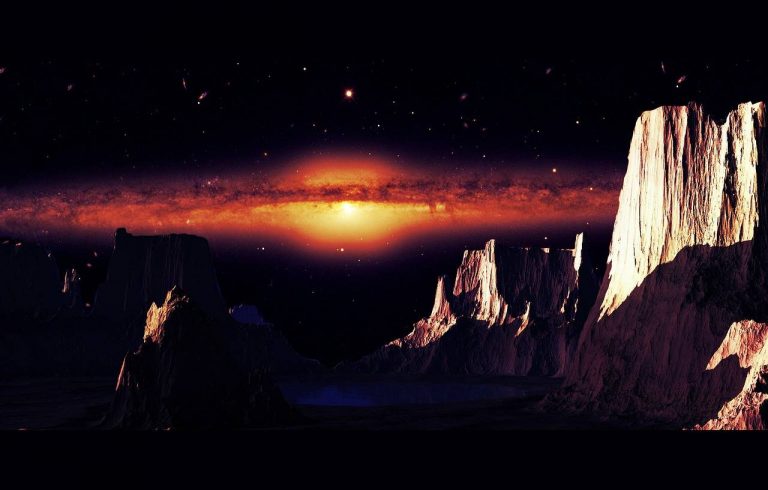Each of us is composed of atoms that were once part of the exploding stars, including atomic carbon, nitrogen and oxygen – fundamental ingredients of life. Over billions of years, these ingredients are condensed, forming gas clouds, new stars, planets, suggesting that all of this – and thus potential life – exists beyond Earth, scattered throughout the universe. If you expect to find in this article questionable eyewitnesses, crazy theories, and raving mad, do not worry: we have a strong case for the existence of extraterrestrial life.
A number of recent discoveries, not only allows you to confidently assume that we are not alone in the universe, but also admits that our solar system may be swarming with life, and is not very reasonable. The issue is not so much whether there is life beyond Earth, but in fact, we find it ever.
Facts that shows about the Existence of Aliens
1. Earlier this year, a group of scientists expressed the estimate that 4.5 billion years ago, at least one-fifth of Mars was covered by an ocean depth of 100 meters. Any signs of life that swim in these waters can be found in the Martian soil. A recent confirmation of the existence on Mars, liquid water flows allows more daring hypothesis: perhaps life still nest on the Red Planet.
2. Water alone is not enough. It takes time. Last August there was a study whose authors concluded that water on Mars was as much as 200 million years longer than previously thought. In addition, life on Earth at the same time as the last lake on Mars.
3. Asteroids and comets – the key to the formation of life on Earth, scientists believe. In particular, the collision of comets, according to the paper published last August, probably led to the unification of the formation of amino acids and building blocks of life. Based on what we know about the formation of the solar system, other comets in other planetary systems continue to maybe create their fruitful business.
4. The tiny moon of Jupiter dotted with Europe scarred with brown streaks, which are believed can point to places where warm, dirty, liquid water from the mantle satellite seeps through its bark. Europe may have more water than Earth, so America and Europe are investing hundreds of millions of dollars in projects future missions designed to search for water beneath the surface of Europe.
5. Apart from Europa there is Saturn’s moon Enceladus, and scientists have confirmed this month that he hides a giant global ocean under its icy crust. Like Europe, Enceladus ocean – the perfect place where life could live apart from the Earth.
6. Search for possible evidence of life on Enceladus continues. The satellite has a strong hydrothermal vents -vrode those who could run the formation of life on Earth – which lie on the ocean floor.
7. In addition to Europe and Enceladus, underground oceans can have at least ten objects in our solar system, planetary scientists suspect. The problem of finding life on these bodies that reach the water mantle, which runs at a depth of hundreds of kilometers, is quite difficult.
8. Besides Earth, Saturn’s largest moon – Titan -is the only body in the solar system with lakes on the surface. These lakes can not be allowed to develop life on earth as composed of liquid methane, not water. However, earlier this year, a group of Cornell researchers has shown that Titan may be a cellular life based on methane.
9. It is possible that life could have formed and flourish only Earthlike planets; it follows that we have a chance to discover life only outside our solar system. Last July, scientists have discovered an Earth-like planet 1400 light years from us. Its size, orbit, light and age lead to “the possibility of life on its surface, as there are all the ingredients necessary for life and conditions.”
10. The famous Drake equation allows us to estimate how many alien civilizations might exist in the Milky Way. It looks like this: N = R * (fp) (ne) (fl) (fi) (fc) L, decoding of each variable below. Based on simple statistics, it is easy to calculate that somewhere there may be thousands, even millions of extraterrestrial civilizations:
- R *: the rate of formation of stars in our galaxy.
- fp: the percentage of stars that have planets.
- ne: number of Earth-like planets around each star has a planet.
- fl: the percentage of terrestrial planets that have developed life.
- fi: the percentage of planets with life, which evolved intelligent life.
- fc: the percentage of intelligent species that come to create a technology that can be detected by the foreign civilisation like ours. For example, radio signals.
- L: the average number of years required an advanced civilisation to detect detectable signals.
11. Many wonders if somewhere there is a reasonable civilisation, why we do not hear from them? Perhaps our own Milky Way galaxy is not the most welcoming a galaxy of life, according to scientific reports, published last month. The study showed that other galaxies in the universe may have 10,000 times more habitable planets than the Milky Way.
12. We all consist of heavy atoms created as a result of explosions of supermassive stars. This not only connects us with the universe but also highlights the possibility of alien life. These ingredients have become a part of the gas cloud, which is sealed, it collapsed and formed the next generation of solar systems – stars with planets in orbit. And these planets also have a starter set of the young creator of life.

